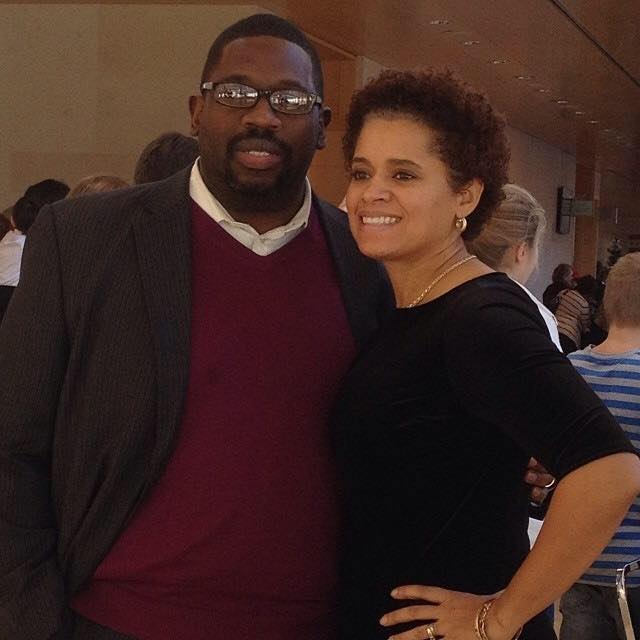
by Rev. David Hart
Over the years, the movie “Love Jones” has grown on me. No, not because I enjoy seeing Nia Long spend 109 minutes in tastefully snug jeans (although that does help advance the movie’s plot, cinematically speaking, of course). I enjoy it mainly because it is a story of a young, intelligent, thoughtful couple struggling with the complexities of togetherness and romance.
In one of the more intriguing scenes, the characters of Nia Long and Lorenz Tate have a discussion about love. “There’s more to life than just sex,” Long exclaims to Tate as she scrawls the word “love” on Tate’s hand. From that point on, the two go on a rewarding but difficult journey to define love internally and between them.
Nia Long and Lorenz Tate’s difficulty defining love in “Love Jones” is immediately touching, because it is so realistic. I have heard friends both single and married wax poetic about the different levels of love. There’s the love that one has for a romantic interest. There’s the love one has for friends and family members. There’s the love between people who share interests or values. There’s even a notion of “being in love” with someone, which I’m told is different than loving someone altogether. All of these types of love are separate and distinct.
What’s more, people come to relationships not only with different ideas of what love is; they also come with expectations, desires, and fears about love which they learned from past relationships. So when two people tell each other “I love you,” they almost always mean different things, and it becomes confusing to talk about love.
Singer Vivian Green points out this frustration about the difficulty defining love in her song “What is Love?” when she laments, “Baby, if this isn’t love, then, really, what is love?”
This point hit home some time ago when I was talking to a small group of Nigerian folks.
We were having an honest dialogue about the differences between Nigerian and African American culture, and one Nigerian pointed to our concept of love as an example of the differences.
When asked, he carefully said, “I don’t know what you all mean when you say ‘love.’ There’s no word for love in any Nigerian language. If you’re ‘with’ someone, or ‘down’ for someone, whether it’s family, friends, or spouse, you’ll do anything for them. It’s an unspoken, spiritual connection that seems to be less fickle than what you call ‘love.’”
This is all-important to us, because our community struggles with defining love on the various levels. We say that we love Black women because they are the mothers of civilization, but we allow musicians to degrade and disparage them in songs and music videos.
We say we love young Black leadership, but we do little to nurture young leaders and prepare them for the future. We even say that we love our community, but somehow, every day, we fail to patronize Black businesses; and we laugh at comedians who turn our misery and stereotypes into lucrative punchlines.
In fact, our community’s well-publicized struggle with defining love has caused the African American Holiday Association to facilitate the creation of a holiday called Black Love Day.
Black Love Day, created over two decades ago, is observed Feb. 13. It calls on African American observers to express “five separate acts of love” for people of African descent and African culture.
It also calls on non-African American observers to practice “love in action.” The Black love website does not specify what “love in action” means. Maybe we can ask Rachel Dolezal for the definition.
But, nowhere is our struggle with self-love more magnified, or poetic than in this society’s love of all things Black.
Our society loves Black culture–our hair, our clothes, our music, our history. In fact, they love Black culture so much, they have made blackness a lucrative business.
Called by its more sanitized name, cultural appropriation, people within this society take pieces of Black culture and incorporate it into their own, to appear more edgy and hip.
So Justin Timberlake has brought sexy back, Miley Cyrus has twerked herself to death, Robin Thicke has blurred the lines between sampling and stealing from Marvin Gaye, and Iggy, well, she’s just being Iggy.
Appropriating Black culture is nothing new. Carla Kaplan, author of “Miss Anne in Harlem,” suggests that America has almost always had a love affair with Black culture toward this end.
This, Kaplan explains is why Harlem streets and nightclubs were packed in the 1920s–to see, hear and experience Black culture. To express a love for a culture unique enough to nurture jazz music and tap dance.
But, down here in reality, there is no love lost for Black People or Black history. Black men and women are decimated by police officers and other Blacks so rapidly, it’s hard to keep up with every incident. Children are educated with textbooks and curriculum, in which Black and African history are a series of footnotes.
And all of this occurs in our watch. We allow this dichotomy of loving Black culture but not Black people to exist in this society. We buy Justin’s music, and forgive those who take Black lives without holding them accountable.
If we love Black culture, if we truly love Black culture, then we love Black people. And if we love Black people, we value their lives as well.
Yes, Black lives do matter.



